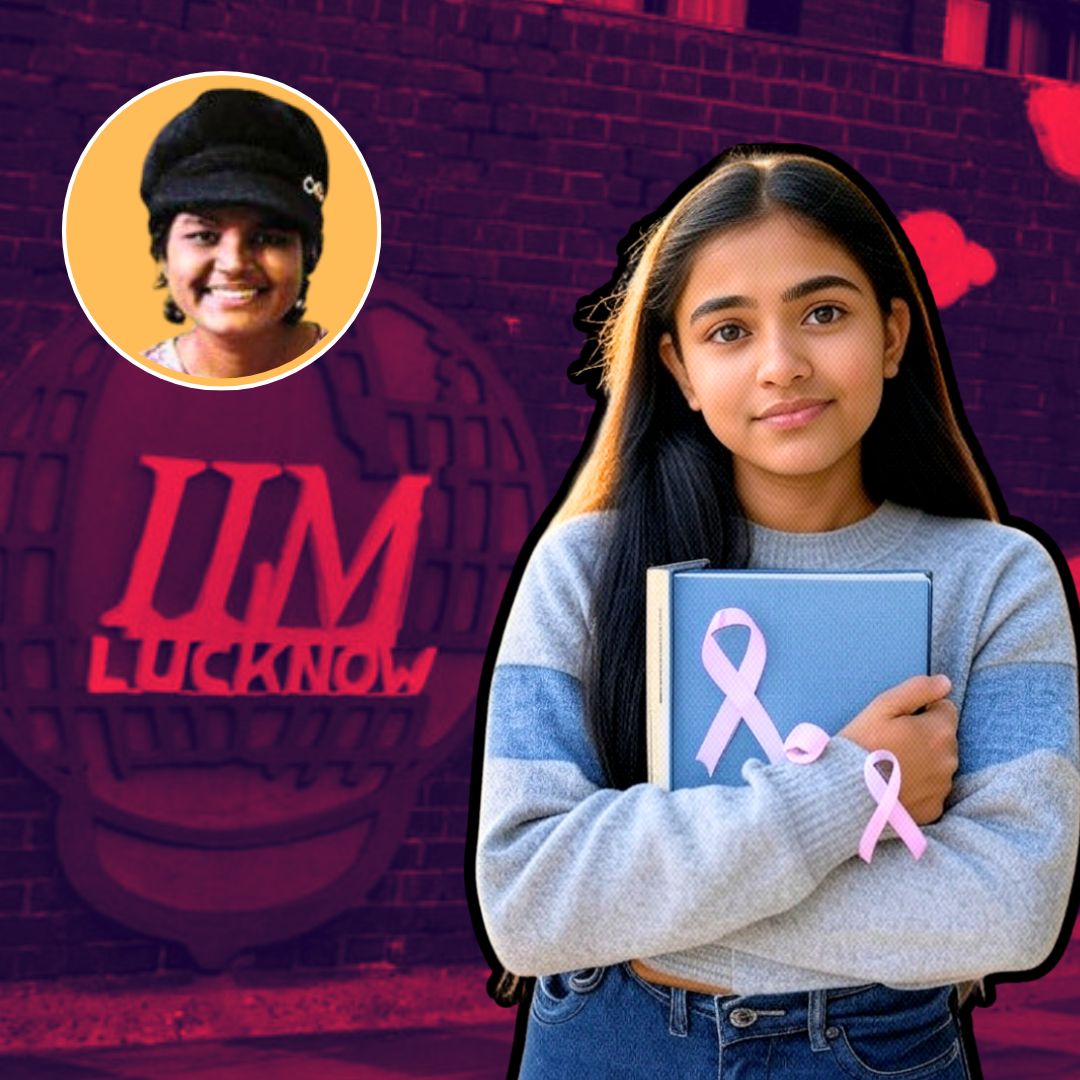Anjali Bharti, a 28-year-old student at the Indian Institute of Management Lucknow (IIM-L), has made an inspiring return to complete her Post Graduate Programme in Management after courageously battling stage III leukaemia for 22 months.
Diagnosed shortly after joining the prestigious institute in 2022, Anjali underwent eight cycles of chemotherapy and a bone marrow transplant, spending nearly two years in hospital while confronting physical and emotional hardships. Supported by her family and IIM Lucknow’s compassionate faculty, she resumed her studies in July 2025. Her story is a powerful testimony of determination, institutional empathy, and hope, resonating deeply with everyone committed to the cause of inclusive education.
A Journey of Strength and Determination
Anjali’s ordeal began soon after she cleared the CAT exam and began her academic journey at IIM Lucknow in 2022. Barely two months into the course, symptoms such as persistent fever and loss of appetite led to a diagnosis of advanced stage III leukaemia. This life-threatening illness severely affected her mobility and overall health, confining her to a wheelchair and necessitating prolonged hospitalisation. Over nearly two years, she underwent rigorous treatments—including chemotherapy and a bone marrow transplant—in a battle that tested her physical endurance and mental resilience.
Despite the immense challenges, Anjali’s spirit remained unbroken. “It’s a new normal. I value myself more now. I don’t laugh like before; I get anxious easily, but my spirits are high to chase life independently again,” she said upon her return to campus. Her determination was met with heartfelt support from IIM-L faculty. Professor Alok Dixit, the PGP Chairperson, highlighted that while the institution allows a maximum of two years’ medical leave, Anjali’s re-enrolment after such a struggle is truly exceptional. “She is a unique inspiration for our entire community,” he remarked, praising both her resolve and the institution’s efforts to accommodate her return.
Professor Suresh Jakhad, a faculty member at IIM Lucknow, also lauded Anjali’s courage, calling her “a true warrior who exemplifies extraordinary determination.” The faculty’s warm welcome and continued encouragement have formed a vital backbone to Anjali’s ongoing academic pursuit, demonstrating how education can be both flexible and empathetic.
Background: From Personal Tragedy to Academic Excellence
Anjali’s academic journey is marked not only by her recent health battle but also by resilience in the face of early life’s hardships. Originally from Patna, she lost her father—a driver—in a road accident in 2012, a tragedy that deeply impacted her family’s financial and emotional stability. Supported by her mother’s tailoring work, Anjali excelled academically, graduating with a physics degree from Magadh University. Though initially preparing for the IIT entrance exam through coaching, she later shifted focus towards management education, successfully clearing the highly competitive CAT exam to secure admission to IIM Lucknow.
Her sudden leukaemia diagnosis, just months into this new phase, posed an enormous barrier to her dreams. Yet the combined strength drawn from her family’s sacrifices, personal grit, and the institutional support from IIM Lucknow has enabled her remarkable comeback. The institute’s willingness to re-enroll her after a prolonged medical leave speaks volumes about its progressive attitude towards students battling serious health challenges—emphasising compassion alongside academic rigour.
The Logical Indian’s Perspective
Anjali Bharti’s story is a poignant reminder of the power of empathy, resilience, and inclusive support systems within educational environments. It highlights the urgent need for academic institutions to embrace policies that view students not merely as scholars but as human beings navigating life’s unexpected crises.
The Logical Indian believes in fostering kindness, understanding, and coexistence, recognising that when institutions stand with their students during their darkest hours, they not only nurture hope but also inspire society to respect every individual’s journey.












